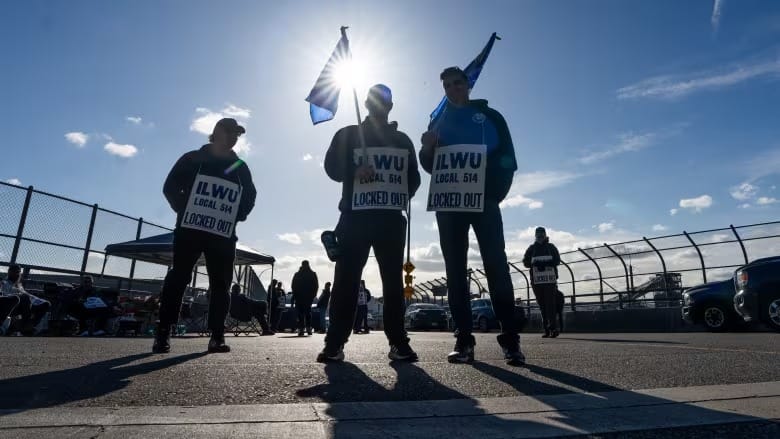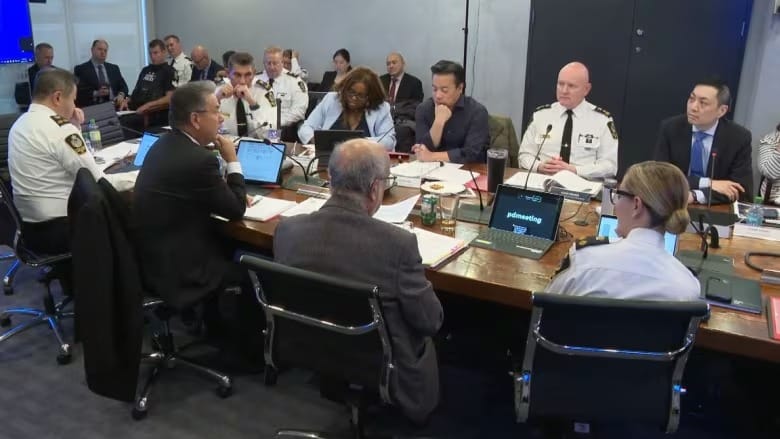Union, B.C. port employers ordered back to bargaining table as work stoppage drags on
Federal labour minister says there has been a 'concerning lack of urgency' in resolving the dispute

Port employers in British Columbia and the union representing over 700 foremen, who have been locked out since Monday, have agreed to reconvene for negotiations with federal mediators this weekend. This decision follows a week of refusal from both sides to return to the bargaining table. On Thursday, the International Longshore and Warehouse Union Local 514 and the B.C. Maritime Employers Association confirmed they would resume discussions on Saturday.
Earlier, Federal Labour Minister Steven MacKinnon voiced frustration over the stalled progress in resolving the B.C. port dispute and a similar work stoppage in Montreal. MacKinnon highlighted a “concerning lack of urgency” in reaching agreements and emphasized that public services like ports are intended to serve Canadians. He urged both parties to find a resolution swiftly.
In B.C., the ongoing lockout has exacerbated concerns within the retail sector, with industry representatives warning that prolonged port closures in Vancouver and Montreal may lead to supply issues during the holiday season. Matt Poirier of the Retail Council of Canada described the situation as a “triple threat,” referencing the port disruptions and labor uncertainty at Canada Post, which could contribute to significant supply chain delays.
Before the recent mediation announcement, labor expert Mark Thompson noted the employers appeared to be “playing hardball” by issuing what they called a final offer. He suggested they might be waiting for potential government intervention, though this would be challenging given that the right to strike is constitutionally protected in Canada.
Meanwhile, union leaders have accused the employers of pushing for government intervention rather than negotiating. Union president Frank Morena claimed that the employers are "favoring confrontation over bargaining,” and confirmed a formal complaint had been filed with the Canada Industrial Relations Board.
The conflict centers around issues like port automation and its impact on unionized jobs, a point of contention since the last contract expired in March 2023. Similar tensions previously led to a 13-day port strike in B.C. last year. Speaking on these challenges, Peter Xotta, president of Vancouver Fraser Port Authority, emphasized the need for technological advancements to keep Canada competitive but acknowledged that this must be balanced with labor considerations.
The Port of Montreal has also been affected, with a strike involving up to 320 dockworkers reducing its container-handling capacity by 40%. Montreal union officials expressed willingness to end the strike if an agreement could be reached, particularly on scheduling.
This wave of disruptions underscores the need for stability in Canada’s supply chain, given the country's reliance on international trade. Stakeholders continue to push for a balanced resolution that ensures both operational efficiency and fair working conditions.





